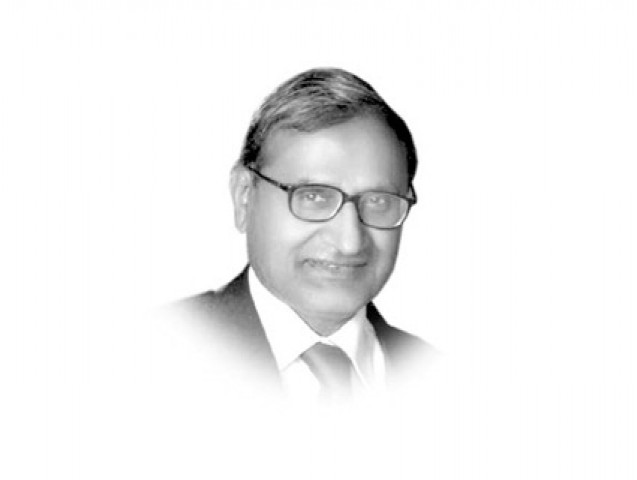Wooing the rural vote
Imran Khan declares that his tsunami would be more rural than urban. This is what it must be if he is to succeed.

Even if the new and, hopefully, transparent voter lists show a significant rise in the urban vote, the rural vote will still outweigh it hugely. It also requires a vast physical expanse to be covered. More important, the issues facing the people in rural areas are quite different. Oratory against inflation does not cut any ice. The gas shortage affects no choolah in rural hutments and the long hours of power cuts hurt only some. Only drinking water attracts some attention. Corruption, leaking public sector enterprises and judicial activism are of no concern to people in the rural areas. Justice has meaning, but only with reference to distribution of land. And in its absence, the large landowners manage their respective flocks of voters.
As a result, the relationship between the voters and those seeking votes becomes transactional. This makes for a difficult ground for a party that has never been in power. Concrete actions weigh more than future promises. An incumbent government in control of the public purse has an edge. The PPP considers rural areas of Sindh and southern Punjab as its vote bank. Far from the madding urban noise about its misgovernance, the party has gone out of its way to maximise the returns from its transactional compact with rural voters.
The government has failed miserably in balancing revenues and expenditures. A critical factor contributing to this has been its support to the agriculture sector, shielding it from taxation. It has resisted pressure from donors, advice by its own economic teams and even legislative efforts by political allies to tax agricultural income. Agricultural produce is exempt from sales tax and tractors from customs duty. Secondly, in cases where it had to tax agriculture indirectly, the levies were reduced or withdrawn after a short period of time. For example, general sales tax on tractors has been reduced from 16 to five per cent. Agricultural produce purchased directly from growers has been exempted from the 3.5 per cent withholding tax, a major concession to the cotton belt of south Punjab. The impact of sales tax on fertilisers is lessened through a subsidy and gas allocation on priority. On the expenditure side, Rs21.6 billion was spent in 2010-11 on agriculture and rural development, subjects which were to be devolved to the provinces.
Imran Khan promised rural change by repeating the miracle of India’s Punjab and if achieved this could add Rs300 billion to incomes. But the experienced vote-seekers (politicians) of our rural areas have already boosted rural incomes by an even larger amount of Rs342 billion: this in 2010-11 alone, and mostly by raising the support price of wheat. Help comes in other ways as well, as in the case of sugar cane where the government has wasted no time in picking up surplus sugar so that the millers can pay the sugarcane farmers. A bonanza is likely to be announced in the next budget. If this requires rupees to be printed by the State Bank, so be it.
The Kaptaan has to promise land reform and that he will tax agricultural incomes. Let the landlords declare their assets too!
Published in The Express Tribune, January 27th, 2012.















COMMENTS
Comments are moderated and generally will be posted if they are on-topic and not abusive.
For more information, please see our Comments FAQ